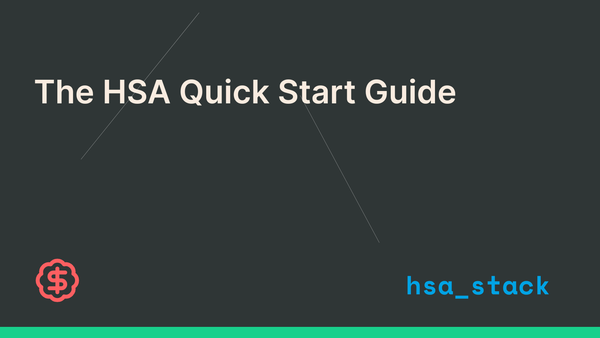The New Law and Your HSA: What's Really In, What's Out
Washington just passed major legislation. We read the whole thing so you don’t have to. Here are the three key changes to your HSA that are now law, and a few that got left on the cutting room floor.

A nearly 900-page bill, The One Big Beautiful Bill Act, was just signed into law. It’s a massive piece of legislation, and the final version contained some important differences from earlier drafts. Buried inside are the most significant updates to Health Savings Accounts (HSAs) in nearly two decades.
Let’s cut through the noise and correct the record. Here’s what actually changed for your HSA, and what was left on the cutting room floor.
What's In: Three Big Wins for HSA Holders
These are the provisions that made it through negotiations and are now law. They expand how you can use your HSA, giving you more flexibility and control.
- Telehealth is Permanently Covered (Pre-Deductible). The temporary rule allowing high-deductible health plans (HDHPs) to cover telehealth visits before you’ve met your deductible is now permanent. This is a big deal. It means you can continue to access convenient, low-cost virtual care without jeopardizing your ability to contribute to your HSA. This change is retroactive to the start of 2025.
- Direct Primary Care (DPC) is Now HSA-Compatible. Starting in 2026, you can pay for a Direct Primary Care membership with your HSA. DPC is a model where you pay a flat monthly fee directly to your doctor for a wide range of primary care services. The new law clarifies that DPC fees (up to $150/month for an individual or $300/month for a family) are qualified medical expenses and won't disqualify you from contributing to an HSA.
- More Health Plans are HSA-Eligible. If you buy your health insurance on the individual marketplace, your options for an HSA just got wider. The law now automatically qualifies all Bronze and Catastrophic level plans as HSA-eligible HDHPs, effective for months after December 31, 2025. This gives more people access to the powerful triple tax-advantaged benefits of an HSA.
What's Out: The Provisions Left Behind
The original House version of the bill contained several other exciting proposals. It's important to know these did not make it into the final law.
- HSA Contributions for Seniors on Medicare Part A: This is the most significant item that was cut. Early reports suggested that working seniors (65+) on Medicare Part A would be allowed to contribute to an HSA. The provision was removed from the final bill, and the existing rule remains: enrollment in any part of Medicare makes you ineligible for new HSA contributions.
- Wellness and Fitness Expenses: A proposal to allow up to $1,000 in HSA funds to be used for gym memberships and other fitness expenses was cut.
- FSA/HRA Rollovers: The ability to roll over a balance from a Flexible Spending Account (FSA) or Health Reimbursement Arrangement (HRA) into an HSA when you switch to an HDHP was removed.
- Dual Catch-Up Contributions: The idea to allow both spouses over 55 to make their $1,000 catch-up contributions to a single, shared HSA did not pass.
The Bottom Line
This new law makes HSAs more flexible and accessible. The permanent telehealth provision, the integration of Direct Primary Care, and the expanded eligibility for marketplace plans are meaningful steps forward that empower you to take greater control of your healthcare spending and long-term savings.
Understanding these changes is the first step. The next is putting them to work. Make sure your records are in order and you have a clear strategy for capturing every dollar of your qualified medical expenses. The landscape is improving, and those who are organized will benefit the most.




